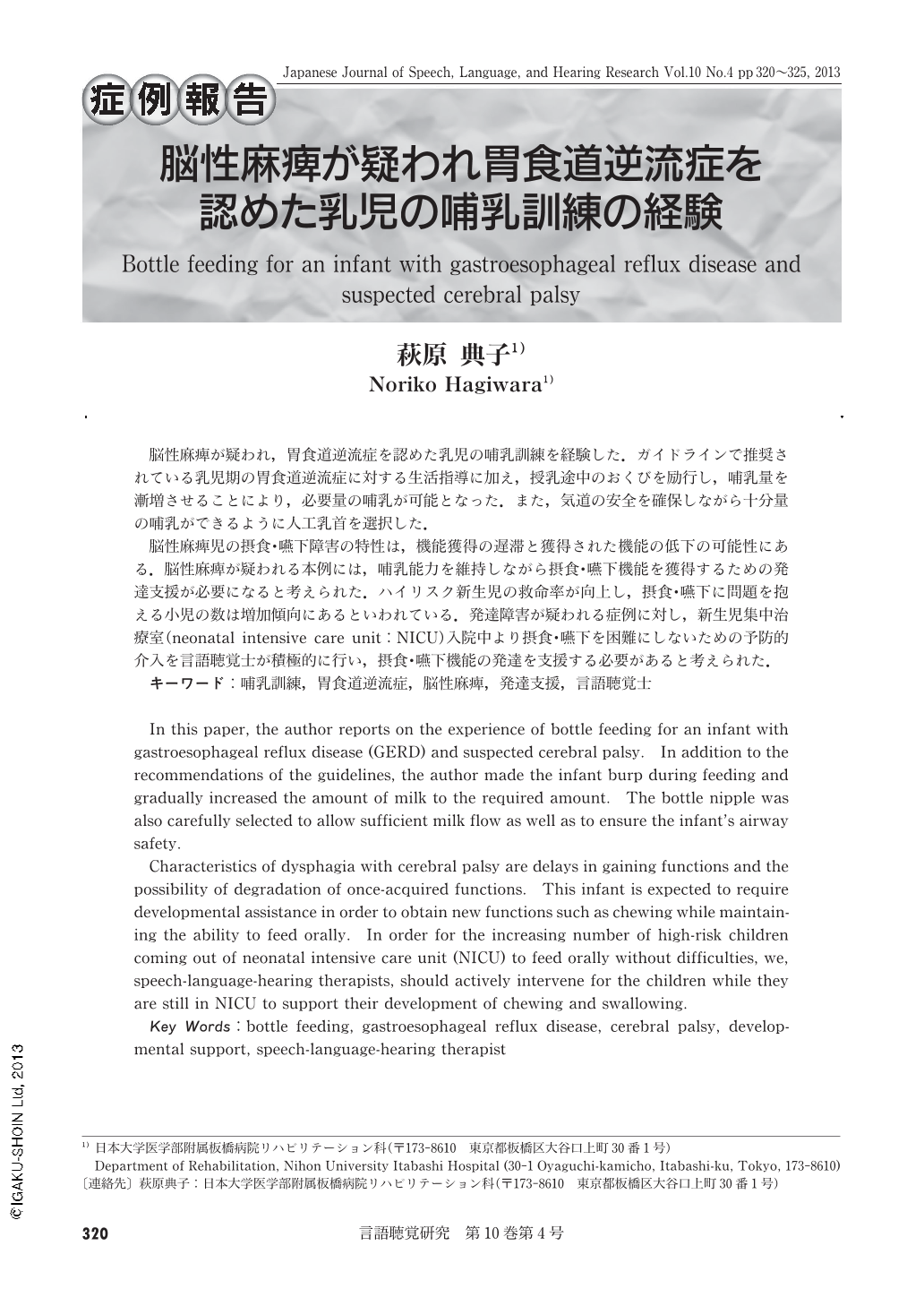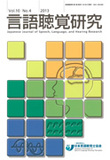Japanese
English
- 有料閲覧
- Abstract 文献概要
- 1ページ目 Look Inside
- 参考文献 Reference
脳性麻痺が疑われ,胃食道逆流症を認めた乳児の哺乳訓練を経験した.ガイドラインで推奨されている乳児期の胃食道逆流症に対する生活指導に加え,授乳途中のおくびを励行し,哺乳量を漸増させることにより,必要量の哺乳が可能となった.また,気道の安全を確保しながら十分量の哺乳ができるように人工乳首を選択した.
脳性麻痺児の摂食・嚥下障害の特性は,機能獲得の遅滞と獲得された機能の低下の可能性にある.脳性麻痺が疑われる本例には,哺乳能力を維持しながら摂食・嚥下機能を獲得するための発達支援が必要になると考えられた.ハイリスク新生児の救命率が向上し,摂食・嚥下に問題を抱える小児の数は増加傾向にあるといわれている.発達障害が疑われる症例に対し,新生児集中治療室(neonatal intensive care unit:NICU)入院中より摂食・嚥下を困難にしないための予防的介入を言語聴覚士が積極的に行い,摂食・嚥下機能の発達を支援する必要があると考えられた.
In this paper, the author reports on the experience of bottle feeding for an infant with gastroesophageal reflux disease (GERD) and suspected cerebral palsy. In addition to the recommendations of the guidelines, the author made the infant burp during feeding and gradually increased the amount of milk to the required amount. The bottle nipple was also carefully selected to allow sufficient milk flow as well as to ensure the infant's airway safety.
Characteristics of dysphagia with cerebral palsy are delays in gaining functions and the possibility of degradation of once-acquired functions. This infant is expected to require developmental assistance in order to obtain new functions such as chewing while maintaining the ability to feed orally. In order for the increasing number of high-risk children coming out of neonatal intensive care unit (NICU) to feed orally without difficulties, we, speech-language-hearing therapists, should actively intervene for the children while they are still in NICU to support their development of chewing and swallowing.

Copyright © 2013, Japanese Association of Speech-Language-Hearing Therapists. All rights reserved.


